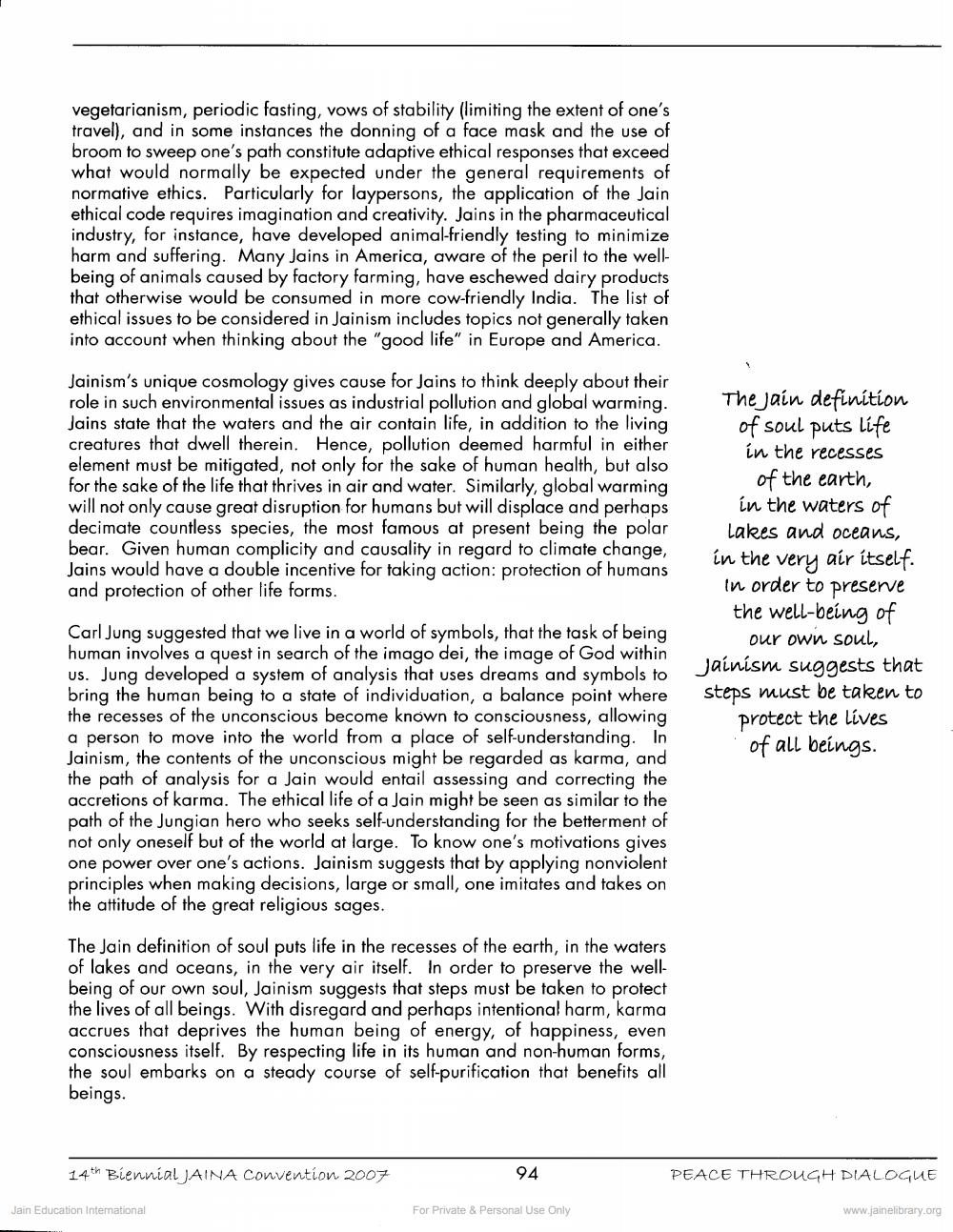________________
vegetarianism, periodic fasting, vows of stability (limiting the extent of one's travel), and in some instances the donning of a face mask and the use of broom to sweep one's path constitute adaptive ethical responses that exceed what would normally be expected under the general requirements of normative ethics. Particularly for laypersons, the application of the Jain ethical code requires imagination and creativity. Jains in the pharmaceutical industry, for instance, have developed animal-friendly testing to minimize harm and suffering. Many Jains in America, aware of the peril to the wellbeing of animals caused by factory farming, have eschewed dairy products that otherwise would be consumed in more cow-friendly India. The list of ethical issues to be considered in Jainism includes topics not generally taken into account when thinking about the "good life" in Europe and America.
Jainism's unique cosmology gives cause for Jains to think deeply about their role in such environmental issues as industrial pollution and global warming. Jains state that the waters and the air contain life, in addition to the living creatures that dwell therein. Hence, pollution deemed harmful in either element must be mitigated, not only for the sake of human health, but also for the sake of the life that thrives in air and water. Similarly, global warming will not only cause great disruption for humans but will displace and perhaps decimate countless species, the most famous at present being the polar bear. Given human complicity and causality in regard to climate change, Jains would have a double incentive for taking action: protection of humans and protection of other life forms.
The Jain definition of soul puts life in the recesses
of the earth, in the waters of Lakes and oceans, in the very air itself. in order to preserve the well-being of
our own soul, Jainism suggests that steps must be taken to
protect the Lives of all beings.
Carl Jung suggested that we live in a world of symbols, that the task of being human involves a quest in search of the imago dei, the image of God within US. Jung developed a system of analysis that uses dreams and symbols to bring the human being to a state of individuation, a balance point where the recesses of the unconscious become known to consciousness, allowing a person to move into the world from a place of self-understanding. In Jainism, the contents of the unconscious might be regarded as karma, and the path of analysis for a Jain would entail assessing and correcting the accretions of karma. The ethical life of a Jain might be seen as similar to the path of the Jungian hero who seeks self-understanding for the betterment of not only oneself but of the world at large. To know one's motivations gives one power over one's actions. Jainism suggests that by applying nonviolent principles when making decisions, large or small, one imitates and takes on the attitude of the great religious sages. The Jain definition of soul puts life in the recesses of the earth, in the waters of lakes and oceans, in the very air itself. In order to preserve the wellbeing of our own soul, Jainism suggests that steps must be taken to protect the lives of all beings. With disregard and perhaps intentional harm, karma accrues that deprives the human being of energy, of happiness, even consciousness itself. By respecting life in its human and non-human forms, the soul embarks on a steady course of self-purification that benefits all beings.
14th Biennial JAINA Convention 2007
94
PEACE THROUGH DIALOGUE
Jain Education Intemational
For Private & Personal Use Only
www.jainelibrary.org




